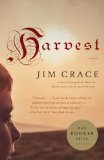Summary | Excerpt | Reviews | Beyond the Book | Readalikes | Genres & Themes | Author Bio

But Brooker and the twins are not practiced at deceit. They'd not succeed as players on a stage as so many other renegades and cutthroats do, escaping justice in a guise. Their guilt is on display for everyone to see. They are too noisy and too keen, especially when Master Kent himself comes down, wrapped in the sleeveless mandilion his wife wove for him in the winter of her death, and stands in shock beside his rescued mare, well back, beyond the heat, to watch his stable disappear. His home and peace of mind are scorched. The guilty men do what they can to make him notice them, make him see how loyal and tireless they're prepared to be on his behalf. Unlike the rest of us, Master Kent included, they'll not admit to at least some errant, childlike fascination with the flames, the old and satisfying way they turn such solids into ash and air. Instead, they lead the rush to bring in water from the pond and cisterns. They make too great a show of beating back the flames with spades. The blaze has made their tongues as dry as hay. They show no fear. It is as if their lives depend upon the quenching of this fire.
Of course, they are the ones— and Brooker Higgs especially; he is the orator— who organize the hunt for those responsible. It is clear at once— as soon as he suggests it— that nobody is ready to believe his claim that such a fire was caused by chance or by the natural overheating of a rick. A good rick's as solid as a cottage, bricked with sheaves. It can sweat, and bake itself. But what could have kindled it? There was no lightning overnight. No one burning farm waste close by sent a vagrant spark across the master's garths. No one slept in the stable block by candlelight. The master cannot be accused of having gone up among the doves with his tobacco pipe. No, this was done maliciously. Brooker is nodding his agreement. Whoever caused "this devil's work," he suggests, pointing at the black remains of the ricking ladder, which only this morning he and his own accomplices leaned against the stable wall for access to the dovecote, probably intended to make off with the master's doves. To eat. Now who among them has so empty a stomach that they would need to steal a neighbor's food? Why only last evening the master himself said he would kill a calf to mark the end of harvest and their election of the Gleaning Queen. So who among them would steal and eat a dove and then find themselves too glutted to enjoy the veal? No, the finger of suspicion points not at a villager— the very thought!— but at a stranger.
There're newcomers, come out of nowhere to the edges of our wood, somebody says, precisely as Brooker hopes they will. This informer waves his hands toward the far side of the fields and that other damper, blacker plume of smoke that all of us with eyes have seen this morning on our way to save the stable. From where we stand their smoke is still bending darkly on a breeze across the treetops.
"We'll call on them, I think," says the master mildly. "We'll call on them to test what answers they provide, but not before we've dampened everything and made my buildings safe." He looks around and shakes his head. This has been a blow for him, another burden to survive. His eyes are watery. Perhaps it's only smoke that makes them watery. "Well . . ." he says, looking toward the smudgy sky above the newcomers, and lets his comment hang. He means that he is heavyhearted at the thought— the logical suspicion, in fact— that the second plume of smoke will lead him to the dove- roasters. And then he knows his duty will demand a firm and heavy hand.
I understand that this is the moment when I should raise my own hand and say my piece, report the dry moonball. Or at least I should take Brooker Higgs aside to nudge him in the ribs. But I hold my tongue instead. A moonball isn't evidence. Nor is bad playing. Besides, I sense the mood is to let this drama run its course and die back with the flames. Today's a rest day and we want the air to clear— to clear of danger and to clear of smoke— so that we can enjoy ourselves as we deserve. This evening there's ale to drink, there's veal to eat, and we will choose the prettiest to be our Gleaning Queen. I'm sure I'm not the only one who elects to hold his tongue and does not, as he should, put up his hand. We do not wish to spoil our holiday, nor will we value bales of straw and doves above our neighbors' sons.
Excerpted from Harvest by Jim Crace. Copyright © 2013 by Jim Crace. Excerpted by permission of Nan A. Talese. All rights reserved. No part of this excerpt may be reproduced or reprinted without permission in writing from the publisher.
Your guide toexceptional books
BookBrowse seeks out and recommends the best in contemporary fiction and nonfiction—books that not only engage and entertain but also deepen our understanding of ourselves and the world around us.